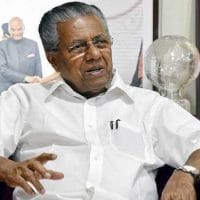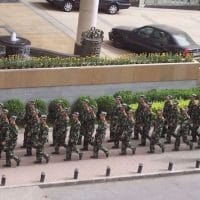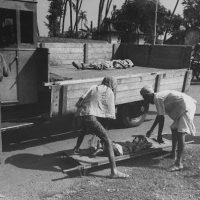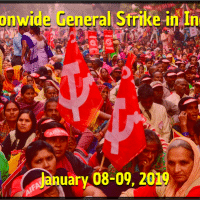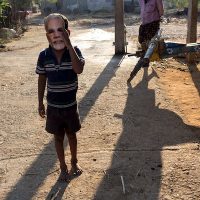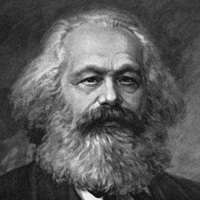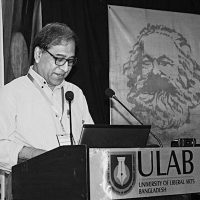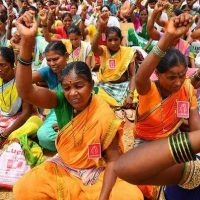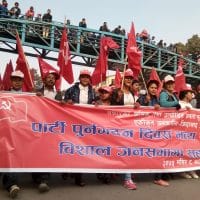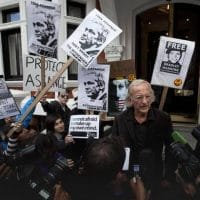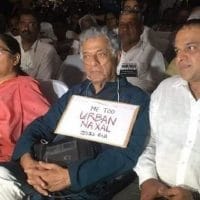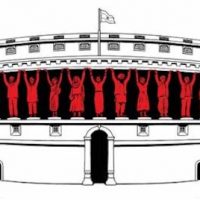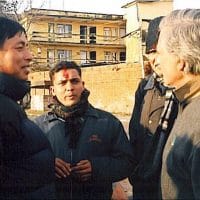-
Constitution is supreme and above all the customs and beliefs: Kerala CM Pinarayi Vijayan
In conversation with the Chief Minister who just completed 1,000 days in office
-
War with China?
Perhaps the greatest victim of this ongoing conflict will be planet Earth itself and all the creatures, humans included, who inhabit it. As the world’s top two emitters of climate-altering greenhouse gases, the U.S. and China must work together to halt global warming or all of us are doomed to a hellish future.
-
AGO proposes nationwide raids on books containing ’banned ideas’
Attorney General Muhammad Prasetyo is proposing that massive raids be carried out to hunt down books which contain communist teachings and banned ideologies. The proposal was made after the seizure of hundreds of books around the country allegedly containing “banned ideas”. — Taufiq Siddiq, Jakarta “I’m proposing that if possible, yes massive raids be carried […]
-
Britain robbed India of $45 trillion & Thence 1.8 billion Indians died from deprivation
Eminent Indian economist Professor Utsa Patnaik (Jawaharlal Nehru University) has estimated that Britain robbed India of $45 trillion between 1765 and 1938, however it is estimated that if India had remained free with 24% of world GDP as in 1700 then its cumulative GDP would have been $232 trillion greater (1700-2003) and $44 trillion greater (1700-1950).
-
Struggles that make the land proud
On 8 and 9 January, over 160 million workers went on strike in India from a broad range of sectors, from industrial workers to health care workers. This has been one of the largest general strikes in the world.
-
Why are 200 million workers on strike in India?
The strike by 10 central trade unions is against a proposal to limit the formation and powers of trade unions, as well as for a minimum wage of Rs. 18,000 and the protection of the public sector.
-
Dossier 12: India’s Communists and the elections of 2019
Ahead of the 2019 elections in India—the largest exercise of electoral democracy in the world–Brinda Karat of the Communist Party of India (Marxist) discusses the current political context in the country and the left-led resistance to the deepening assault on basic human rights led by India’s right-wing.
-
Karl Marx on India: An assessment (Part II)
Marx correlates the decrease of Indian textile exports with the monopoly exerted by British muslins to India and the decimation of the population of Dhaka.
-
Karl Marx on India: An assessment (Part I)
In a Delhi bookshop this October, I came across Karl Marx on India. Edited by Iqbal Husain, former Professor of History at Aligarh Muslim University, and published under the aegis of Aligarh Historians Society by Tulika Books in 2006, the book attracted me too because it contained a long Introduction by the eminent Aligarh historian, Professor Irfan Habib.
-
Legacies crucial for the commons
The 150th birth anniversary year of Mohandas Karamchand Gandhi and the 200th birth anniversary of Karl Marx went by this year. Such anniversaries can become occasions of tokenism—for instance, the Indian government has set up a committee with more than 100 members to coordinate celebrations of Gandhi’s anniversary, crammed with political bigwigs from various parties, a few academics and Gandhian workers.
-
Young readers of Marx: BICENTENARY OF MARX’S BIRTH
The year of 2018 marked 200 years of Karl Marx’s birth anniversary. On this occasion, teachers and students of the department of English and Humanities at University of Liberal Arts Bangladesh organised a two-day international conference showcasing the ways young scholars have engaged with Marx’s body of work. Nasir Uz Zaman reports from the event.
-
Biplav’s Communist Party of Nepal on the move
A five-year-old revolutionary movement in Nepal brings together program and commitment in a way that powerfully prefigures communist society.
-
New Cold War & looming threats
John Pilger, investigative journalist and documentary film-maker, talks about the U.S.’ aggression in the Asia-Pacific region and the decline of its global dominance and says that a “new Cold War beckons isolation for the U.S. and danger for the rest of us”.
-
Vilifying the intelligentsia
NARENDRA Modi said the other day, rather disparagingly, that the “Urban Naxals” live in air-conditioned comfort. Since all who speak or write in public upholding the right to dissent from the Hindutva positions, including even known critics of the Left, which means virtually all members of the intelligentsia who display any integrity, have been dubbed “Urban Naxals” by his government, his remark in effect amounts to targeting the entire intelligentsia.
-
Promote the health of all the people of the world
Earlier this month, in Savar (Bangladesh), over 1400 delegates came to the fourth People’s Health Assembly–first held in 2000 by popular health organisations to drive a global dynamic to champion public health measures. At the centre of the discussions were increased health inequalities–between the rich and the poor certainly, but also sharply between affluent states and states that have found their wealth robbed by colonialism and the adverse order produced over the past fifty years.
-
Fake news on WhatsApp swayed Brazil’s election. India should be worried
WhatsApp and fake news go hand-in-hand in both Brazil and India. And judging by the Facebook-owned messaging app’s effect on Brazil’s recent presidential election, India may be slated for some serious trouble next spring.
-
If the field cannot feed the farmer, then burn the field
A few days from now–on 29-30 November–a very large number of people will gather in New Delhi, the capital of India, to say that they stand with India’s farmers (kisans).
-
Filming in the most depressing city on the Earth: Jakarta
It stinks, it is the most polluted city on earth, but that is not the most terrible thing about it.
-
Meeting Comrade Pasang, Nepal’s Vice President: Dispatch by a far-flung Bolivarian
How can politics be a way of pursuing the same goals once pursued in war? And through what form of politics? The career of Pasang, from revolutionary military commander to Vice President of Nepal, raises a host of questions about the transition from war to politics and the conditions of victory in each sphere.
-
“Hell No!’—Stokely Carmichael twenty years on
Within a timeframe of hardly four years, Stokely Carmichael’s organizational efforts evolved from the mobilization of black voters in Alabama and Mississippi to building a large movement resisting the military draft at the height of the Vietnam war, culminating in the SNCC’s “Hell No! We Won’t Go!” campaign.

